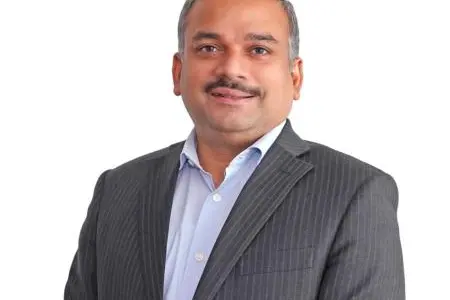PHOTO
On the 33rd anniversary of Computer Security Day, Check Point® Software Technologies Ltd. (NASDAQ: CHKP), a leading provider of cyber security solutions globally, provides five important reminders for protecting IT systems in the home and office.
Since Computer Security Day started in 1988, the level of cyber threats has increased every year and the last 12 months have seen the highest level of cyber incidents ever. New and more sophisticated threats, more devices, more computing power and professional criminal gangs mean that anyone with a computer, smartphone or IoT device must now regularly think about cybersecurity but still, many don’t. Especially in today’s world with the increase in remote working, each of us carries a certain level of responsibility when it comes to security. For this reason, the following tips have been compiled to provide guidance and assistance in protecting both our personal devices and corporate IT systems:
- Passwords are important: Passwords should be checked and strengthened regularly. However, experts argue about the length and composition as well as the frequency of renewal. It is important for users to handle their passwords carefully, not to store them unsecured in Excel spreadsheets or leave them written down for anyone to see or stick them on the back of the keyboard. "1234" or "password" are not secure passwords.
- Protect against phishing: Users should be careful before clicking on links that look suspicious in any way, often associated with the sender. They should also only download content from reliable sources, as phishing, a popular form of social engineering, has become the main avenue of attack. Therefore, if users receive an email with an unusual request or a strange sender or subject, they should immediately start doubting.
- Choose IT devices carefully: In connection with remote working, this point has become extremely important. The risk of a large-scale attack increases when employees use their personal devices, such as computers or cell phones, for work-related purposes. Security software should be installed on all devices and the connection to the company network should be protected.
- Keep software fresh: Hackers often find entry points in applications, operating systems and security solutions, as they generally monitor and exploit the appearance of vulnerabilities. One of the best protective measures is to always use the latest version of any software - simple, basic but effective.
- Use multi-factor authentication: Multi factor authentication is something many users are already familiar with from their online banking accounts, for example, when a TAN (single-use passcode) is requested via cell phone. In many cases, this login method is now being introduced for applications and accounts at online retailers to increase IT security. In this way, they have made it almost impossible for cyber criminals to gain access to the system despite knowing the password.
This advice already goes a long way toward protecting your own devices and your company against cyberattacks and malware. However, it should also be supplemented by a comprehensive IT security architecture that consolidates and centrally controls various security solutions against different types of attack. This covers all areas of IT security and can even intercept the dreaded zero-day attacks. Finally, round off the strategy by training all employees up to management level, including the training of specialists via special training programs and learning platforms.
All of Check Point Software's reports can be found at: https://blog.checkpoint.com/
-Ends-
Follow Check Point on:
Twitter: https://www.twitter.com/checkpointsw
Facebook: https://www.facebook.com/checkpointsoftware
Blog: https://blog.checkpoint.com
YouTube: https://www.youtube.com/user/CPGlobal
LinkedIn: https://www.linkedin.com/company/check-point-software-technologies
About Check Point Software Technologies Ltd.
Check Point Software Technologies Ltd. (www.checkpoint.com) is a leading provider of cyber security solutions for enterprises and governments worldwide. Check Point Infinity portfolio solutions protect customers against 5th generation cyber attacks with industry-leading catch rates of malware, ransomware and other threats. Infinity rests on three core pillars that provide uncompromised security and Generation V threat defense in enterprise environments: Check Point Harmony for remote users; Check Point CloudGuard for automated cloud protection; Check Point Quantum for network perimeter and data center protection – all driven by the industry's most comprehensive and intuitive unified security management. Check Point protects more than 100,000 businesses of all sizes around the world.
© Press Release 2021
Disclaimer: The contents of this press release was provided from an external third party provider. This website is not responsible for, and does not control, such external content. This content is provided on an “as is” and “as available” basis and has not been edited in any way. Neither this website nor our affiliates guarantee the accuracy of or endorse the views or opinions expressed in this press release.
The press release is provided for informational purposes only. The content does not provide tax, legal or investment advice or opinion regarding the suitability, value or profitability of any particular security, portfolio or investment strategy. Neither this website nor our affiliates shall be liable for any errors or inaccuracies in the content, or for any actions taken by you in reliance thereon. You expressly agree that your use of the information within this article is at your sole risk.
To the fullest extent permitted by applicable law, this website, its parent company, its subsidiaries, its affiliates and the respective shareholders, directors, officers, employees, agents, advertisers, content providers and licensors will not be liable (jointly or severally) to you for any direct, indirect, consequential, special, incidental, punitive or exemplary damages, including without limitation, lost profits, lost savings and lost revenues, whether in negligence, tort, contract or any other theory of liability, even if the parties have been advised of the possibility or could have foreseen any such damages.




















